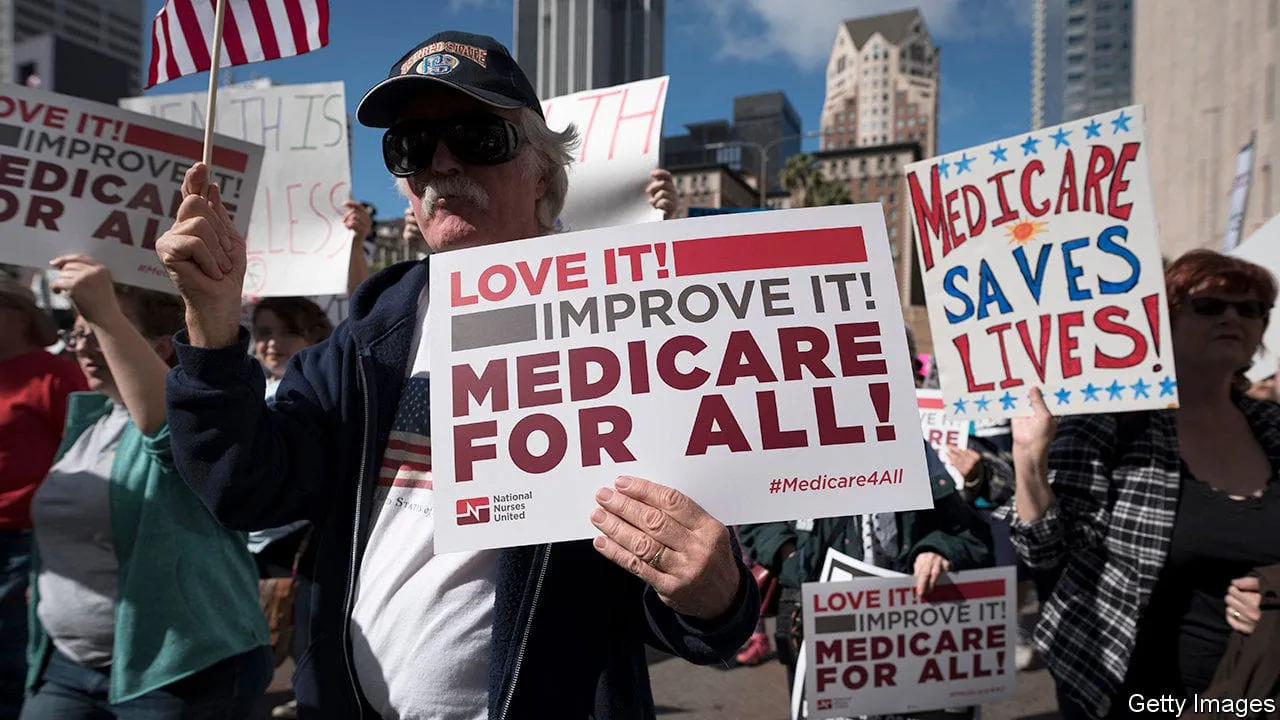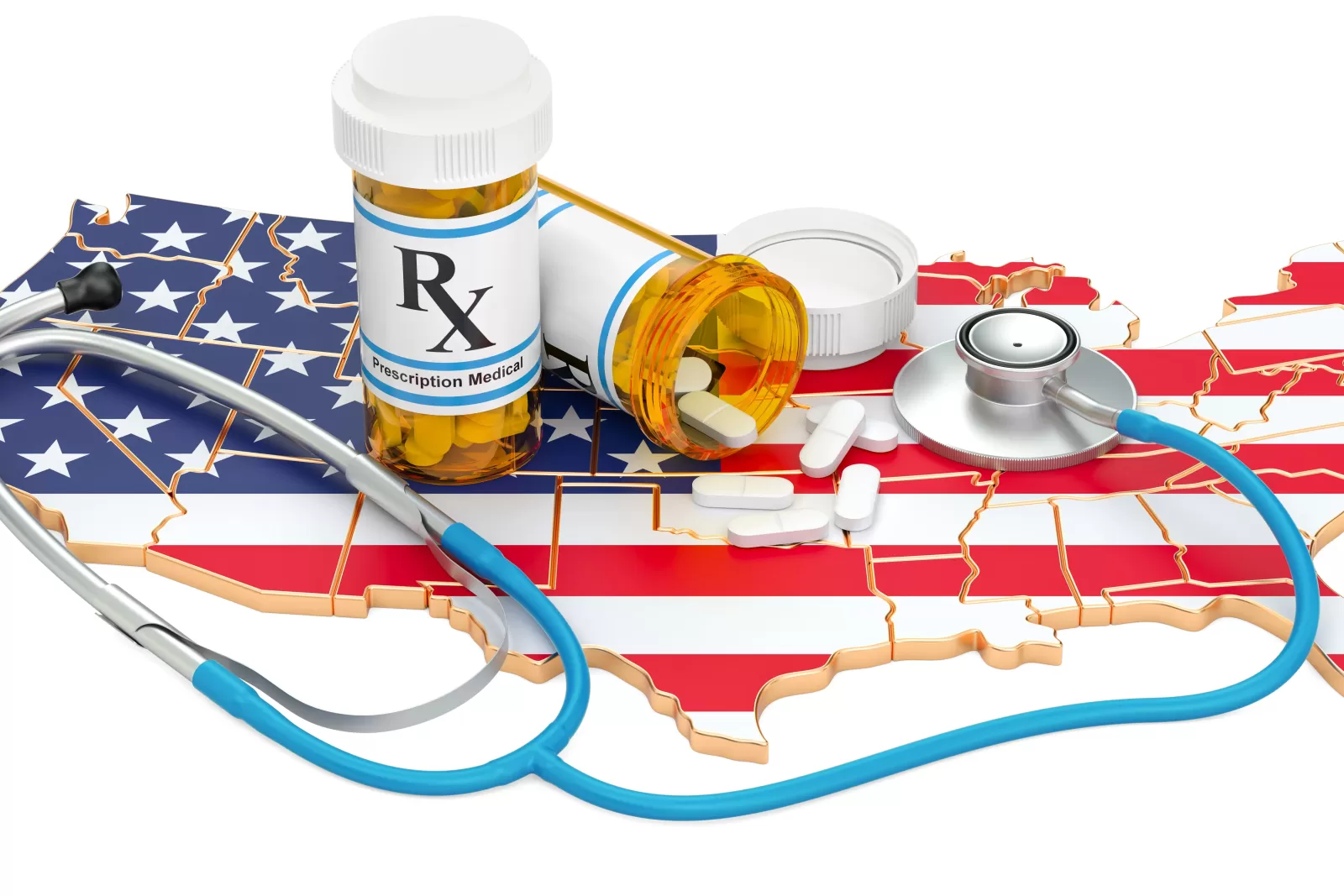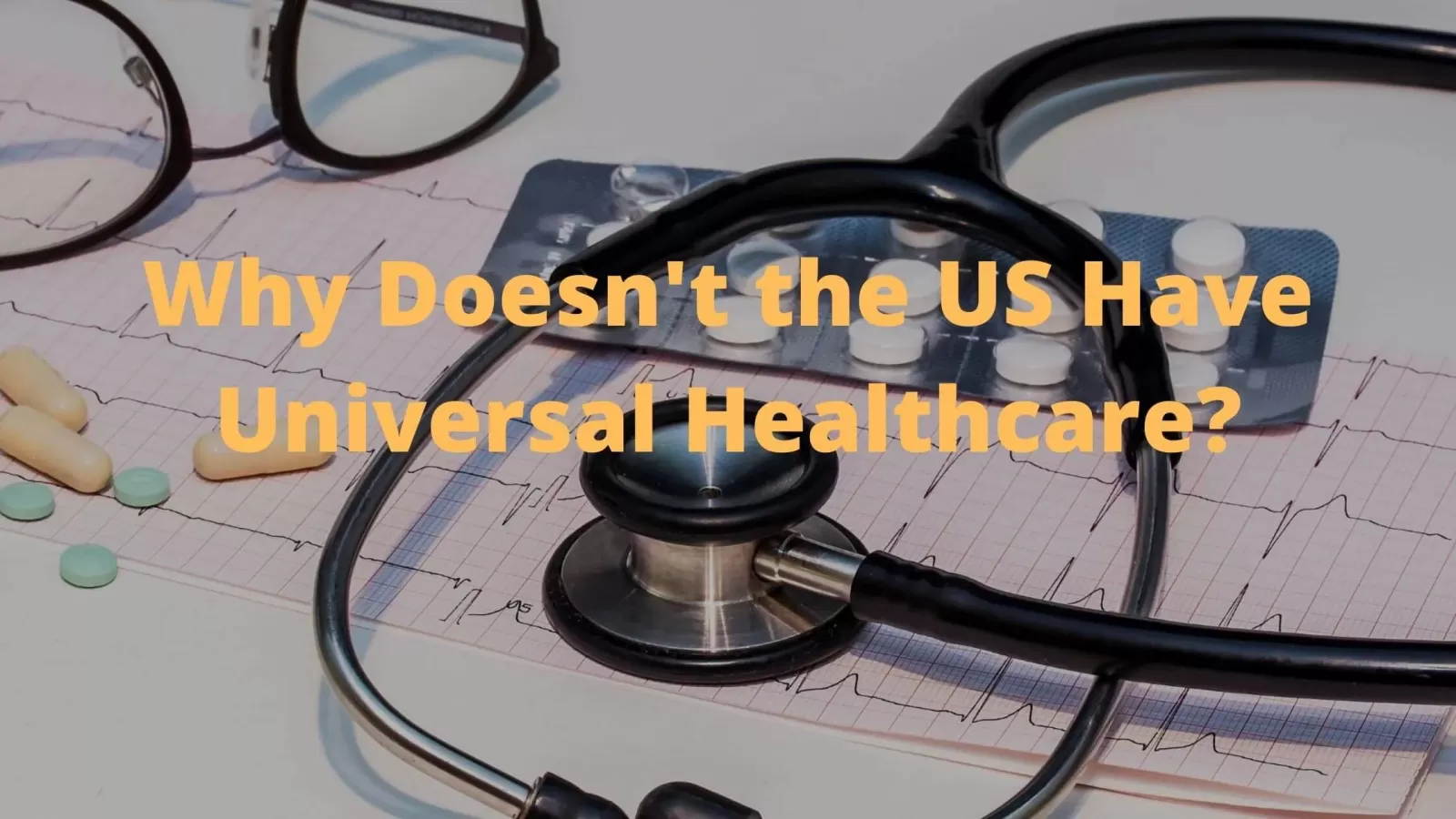In the United States, there's been ongoing chatter about whether we should adopt a national health service similar to the NHS in England. This debate largely involves the public, as it's unlikely the government will ever introduce a completely free healthcare system. Why The US Does Not Have A National Health Service Like The UK? They'd lose a significant source of revenue. But could they actually do it? Let's delve into this intriguing question.
#1. Why The US Does Not Have A National Health Service Like The UK?
Reason 1: We don't want it
One significant reason why the US does not have a national health service lies in the nation's unique political culture. America, founded by immigrants with an entrepreneurial spirit and devoid of a feudal system, has fostered a deeply ingrained sense of individualism.
A notable image of protesters expressing their stance against big government captures this sentiment well. This cultural backdrop, especially among conservatives, champions classical liberalism, emphasizing limited government intervention. Universal healthcare, which necessitates extensive government involvement, directly contradicts these values, explaining why it has not been adopted in the US despite its implementation in other countries.
Public opinion aligns with this perspective. Research by the International Social Survey Program indicates that fewer Americans view healthcare as a government responsibility compared to citizens in other developed nations like Canada, the UK, Germany, and Sweden. This belief reinforces the resistance to a national health service in the United States.
Reason 2: Interest Groups Don’t Want It
While American political culture significantly influences the healthcare debate, it's not the sole factor. The power of interest groups also plays a critical role in preventing the establishment of a national health service. These groups have a substantial influence on the political process, often shaping policy to align with their interests.
For instance, the legislative battle over the Affordable Care Act (ACA) in 2009 saw a staggering $1.2 billion in lobbying efforts. The insurance industry was a major player, investing over $100 million to ensure that private insurers remained central to American healthcare, rather than shifting to a government-centric model.
Currently, lobbyists are already gearing up to oppose any potential "public option" under the ACA. Should there ever be a serious move towards comprehensive national health insurance, these lobbyists would undoubtedly mobilize to block its implementation. This persistent opposition from powerful interest groups is a significant barrier to the US adopting a national health service similar to other countries.
Reason 3: Enacting Entitlement Programs is Inherently Difficult
The absence of universal health coverage in the United States is also attributable to the inherent challenges of enacting large-scale entitlement programs within the American political system. Scholars and policy analysts consistently highlight that the structural framework of US political institutions inherently resists comprehensive reforms, including those aimed at establishing a national health service.
The legislative process in the United States is complex and cumbersome, characterized by numerous stages that any proposed reform must navigate. These include various congressional committees, rigorous budget evaluations, conference committees, potential amendments, and the ever-present threat of a presidential veto. Throughout this process, opponents of reform often engage in high-profile public campaigns to discredit and oppose the proposed legislation.
Consequently, the US stands out as one of the few advanced industrialized nations lacking a comprehensive national health insurance system. The likelihood of such a system being established remains slim due to several factors that make the US exceptional in this regard.
#2. Would The US Create A National Health Service Like The UK?
Political Resistance
The journey toward implementing a national health system in the US is fraught with significant political challenges. Free market proponents argue that such a system would lead to increased government intervention in private lives, which they staunchly oppose. Major players in the healthcare sector, such as insurance companies and pharmaceutical firms, are also likely to resist these changes due to the potential impact on their profits.
Economic Challenges
From an economic standpoint, funding a national health service would necessitate substantial investment. This could potentially require a major overhaul of the tax system to generate the necessary funds. Transitioning from the current system to a national health service without causing major disruptions to patients or healthcare providers presents another complex issue that needs careful consideration.
Logistical Obstacles
Establishing a national health service akin to the UK's NHS is an appealing concept, promising universal healthcare and effective budgetary control. However, the logistical hurdles are formidable. The US would need to navigate the complexities of dismantling the existing insurance-based system while ensuring continuous care for millions of Americans. The sheer scale of this task makes it uncertain whether such a system could ever be realized in America.
#3. What Are The Benefits Of A National Health Service?
Universal Coverage
A primary benefit of establishing a national health service in the US is achieving universal coverage. This means every American, regardless of their socio-economic status, would have access to medical care. Universal healthcare would eliminate the issue of uninsured and underinsured populations, thereby significantly improving overall health outcomes and reducing health disparities. While this shift might not directly benefit the government's finances, it would foster a healthier, more equitable society.
Cost Containment
Another advantage lies in cost containment. A national health service could leverage bulk purchasing and standardized pricing for medications and treatments to reduce expenses significantly. By eliminating the administrative overheads associated with multiple insurers, the system could operate more efficiently, directing resources toward patient care rather than bureaucracy.
Cost Savings
Strategic investments in a national health service could yield substantial cost savings. High-quality medical equipment that is durable and reliable reduces the need for frequent replacements and repairs, thus lowering long-term costs. Investing in efficient medical devices, such as self-retaining retractors, advanced monitoring systems, and remote patient monitoring technologies, can save considerable sums of money by enhancing the efficiency and effectiveness of healthcare delivery.
Conclusion
In summary, while the concept of a national health service offers significant benefits such as universal coverage and cost savings, the path to its implementation in the US is lined with substantial political, economic, and logistical challenges. The debate continues to play a crucial role in shaping the future of healthcare in America. We hope that this article give you the answer of this question "Why The US Does Not Have A National Health Service Like The UK?"
Maybe you are interested:

Best 4 Tips To Get Rid of Back Pain Fast That You Should Know

Why Do You Weigh Less In The Morning?







